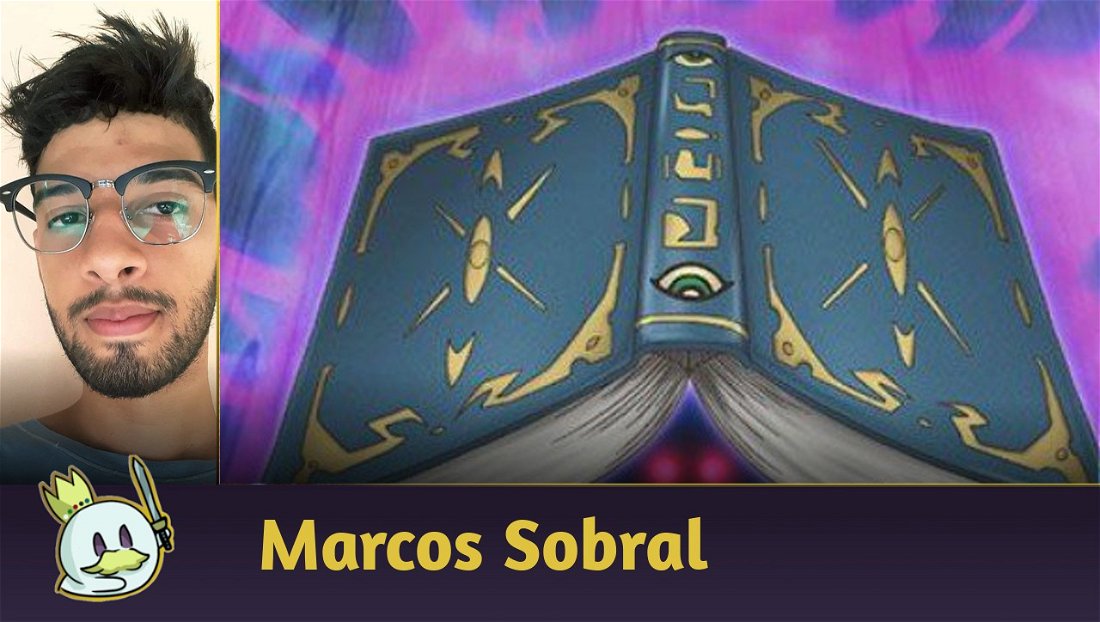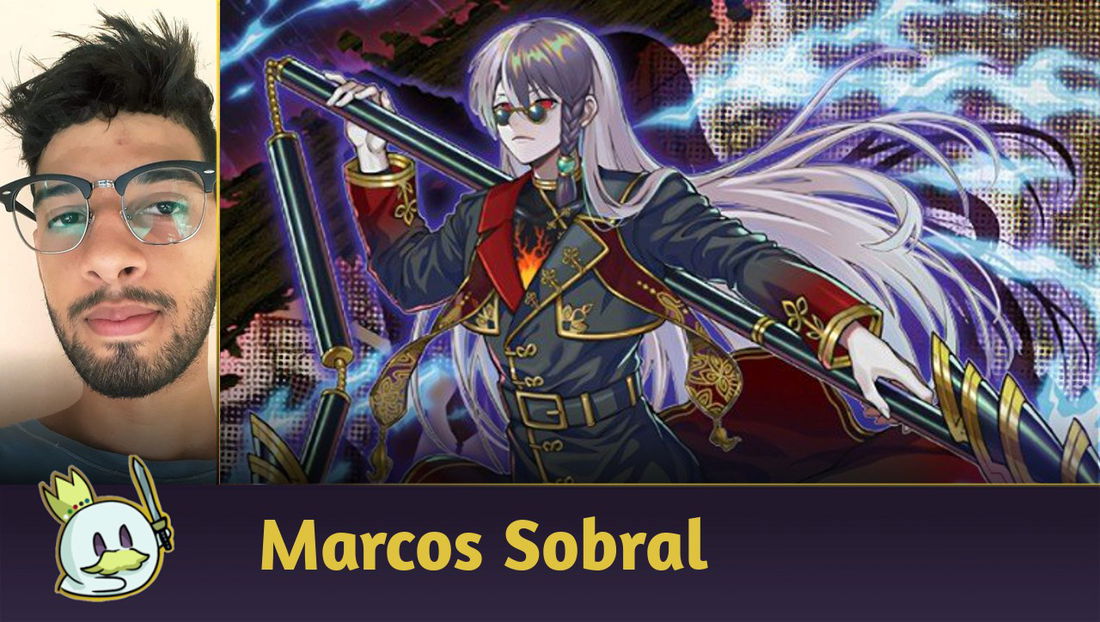What is a Metagame?
To understand what is a metagame, we first need to know what "meta" means, the acronym that originated the term. "META" means "Most Effective Tactics Available". Therefore, you can define the meta as a term used to highlight what are the most used strategies in a competitive game, and, in this case, it also refers to the most dominant and/or popular decks in Yu-Gi-Oh! TCG's Advanced format.
As for metagame, it refers to the "game beyond the game", and also refers to the context that surrounds the game, such as, for instance, how players tend to choose a certain deck or game style. It often means trying to predict your opponents' strategies based on your knowledge about the most popular trends in the format, adjusting your strategy to anticipate other players' moves.
Let's imagine a metagame with three main decks, in which:
- Deck A has a good matchup against Deck B;
- Deck B has a good matchup against Deck C;
- Deck C has a good matchup against Deck A.
Like so, if deck B is the most popular deck in the format, deck A becomes the most advantageous option as it has a good matchup against the most represented deck. However, if deck A then becomes the most popular deck as it is well-positioned, deck C will become the next better option.
Which means, the metagame is an eternal cycle in which players try to adapt to each other to get ahead, creating a balance among the best decks!
How to Study the Metagame?
To study the metagame, you need to, before anything else, know how and where to research it. Like so, the best way to keep up with Yu-Gi-Oh! TCG's metagame is to keep up with the results of relevant tournaments, such as, for instance, the YCS's, which tend to represent the state of the current metagame really well.
To help you in your search for these results, the best alternative is to keep up with the work of the several content creators who post main Yu-Gi-Oh! TCG events reports on their YouTube channels. By watching these reports, you'll know what were the most represented decks in that event's top cut, and it is usually there you'll find the meta decks!
Besides that, there are also channels who post duelingbook high-rated replays, which is the pro-scene's favorite platform because it is completely manual. Keeping up with these matches provides you with not only knowledge of how the main decks in the format work, but also knowledge of the way great players play during their duels.
Metagame Examples and How to Identify Them
Another important factor which can be crucial to observe in these reports is the type of metagame in the format shown, which can be closed or open.
A closed metagame has just a few main decks, and, besides that, they are quite stronger than the rest of the decks, in a way that it doesn't make sense to use "off-meta" decks if you want to perform well in a tournament.
As for an open metagame, it is more diverse, counting on more decks at the top of the format. Even when the main decks are quite defined and more represented in the main events due to that, the power distance between the best deck and the other ones isn't that big, which will give rogue decks more chances to defeat meta decks.
Like so, you need to observe the variety of decks present at the very top of the tournament rankings to identify if a format is open or closed.
How to Take Advantage of Metagame Knowledge?
To finish, after studying the main decks and figuring out which trends are on the rise in the format, you can take advantage of that knowledge to use the best strategy possible, be it when choosing your deck or when you're deciding which techs to use in it.
In open formats, it is a bit harder to counter the meta, once there are many decks to worry about, so, if you want to use an "off-meta" deck, you'll ideally opt for a more versatile deck which can "play around" the most popular techs.
As for closed formats, despite the meta having a higher power level due to the low number of "enemies", you can be more specific when countering the meta decks.
An example of this happened with the tier 0 Tearlaments format earlier this year, in which the main deck abused graveyard effects. Some decks which would usually be irrelevant became popular as they performed reasonably well against Tearlaments. We have, for instance, Exocister, due to this archetype's "anti-graveyard" mechanic and because it used Dimension Shifter, and also Maldoche, which could use Ishizu shufflers really well.
Yu-Gi-Oh! TCG's Constant Metagame Changes
Yu-Gi-Oh! TCG's metagame is quite dynamic and tends to be defined by pro-players' decisions, as in, competitive players with relevant results in high-skill tournaments, because these players will test and explore the best strategies available in the cardgame more than anyone else.

Another factor capable of defining the metagame is Konami's influence, the company responsible for releasing new Yu-Gi-Oh! TCG cards and also for updating the Forbidden and Limited Card List (the banlist), which is something that greatly impacts the game!
A Metagame Example with the Current Standard Format
Currently, Yu-Gi-Oh! TCG's Advanced format is going through an open metagame; however, it is very consolidated when it comes to the top decks. Based on the number of topcuts decks have conquered throughout this format, you can say tier 1 is formed by the following decks: Kashtira, Labrynth and Spright (Runick).
Even though it seems like a very small number of decks for an "open" format, there are many tier 2 decks, and each of them can be a suitable option that will bring you good results in a high-skill tournament. The following decks make up the current format's tier 2: Branded Despia, Bystial Dragon Link, Mathmech, Purrely, Rikka Sunavalon, Swordsoul and Vanquish Soul.
Main Decklists in the Format
Kashtira
Labrynth
Spright Runick Evil Twin
Branded Despia
Bystial Dragon Link
Mathmech
Purrely
Rikka Sunavalon
Swordsoul
Vanquish Soul
The Importance of the Metagame in Yu-Gi-Oh! TCG's Competitive Scene
Competitive Yu-Gi-Oh! TCG players strongly value eliminating luck from their matches and are always looking for ways to make their decisions the only factor that will decide their duels. That's where the metagame's importance will come in, as it is a way to help you understand the game to better prepare yourself against what you might face.
Even though this is a concept focused on the competitive scene, it is extremely important that casual and beginner players try to understand it too. After all, you need to understand the metagame to be a good player. And, by understanding it, the player will know the best way to prepare their deck to win or defend themselves against an opponent.
Despite looking a bit stale and predictable, the metagame isn't set in stone, and it really changes from one tournament to another, from one place to another. This dynamic forces players to look for new strategies, something that may impact how you choose your decks and your techs. Like so, players need to adapt to how the meta spins to keep on having good results at a high competitive level.
Due to that, competitive players prefer having a closed metagame, which means, a metagame in which there aren't too many decks among the best decks in the format, as this way it is easier to align your techs and prepare a specific side deck for the main matchups. On the other side, casual players prefer a more varied metagame, in which low skill-expression decks have greater chances of performing well and surprising meta decks.
Particularly, I understand both sides, but I believe players who always use meta decks don't need to be afraid of being surprised by less efficient decks, as they'll already be using the best available strategies in the game, besides usually being more experienced anyway.
To sum up, to keep a good competitive level, you need to not only dominate your deck, but also get to know the other decks that are rising at that moment, which is something that will improve your decision-making in duels and guide your deckbuilding. It is through studying the game you'll be able to make the best decisions for any situation and, consequently, grow as a player and have better results!
Final Words
So, will you study the metagame to improve as a player? Tell us all about it in the comment section.
To get further information on the Yu-Gi-Oh! TCG world, keep on browsing our articles. Cards Realm thanks you for your support!















— Comentários 0
, Reações 1
Seja o primeiro a comentar